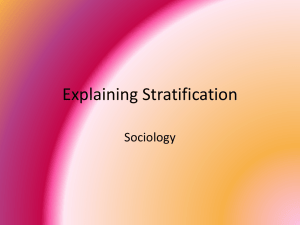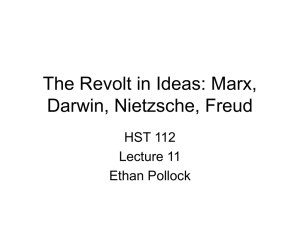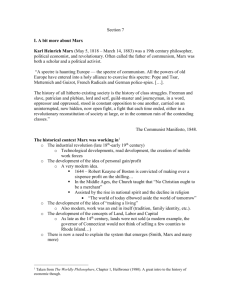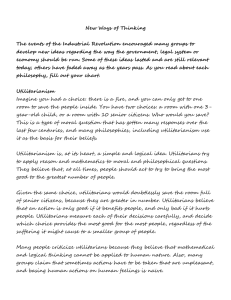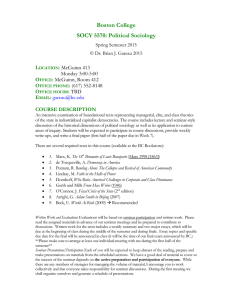Study Guide for Test 1
advertisement
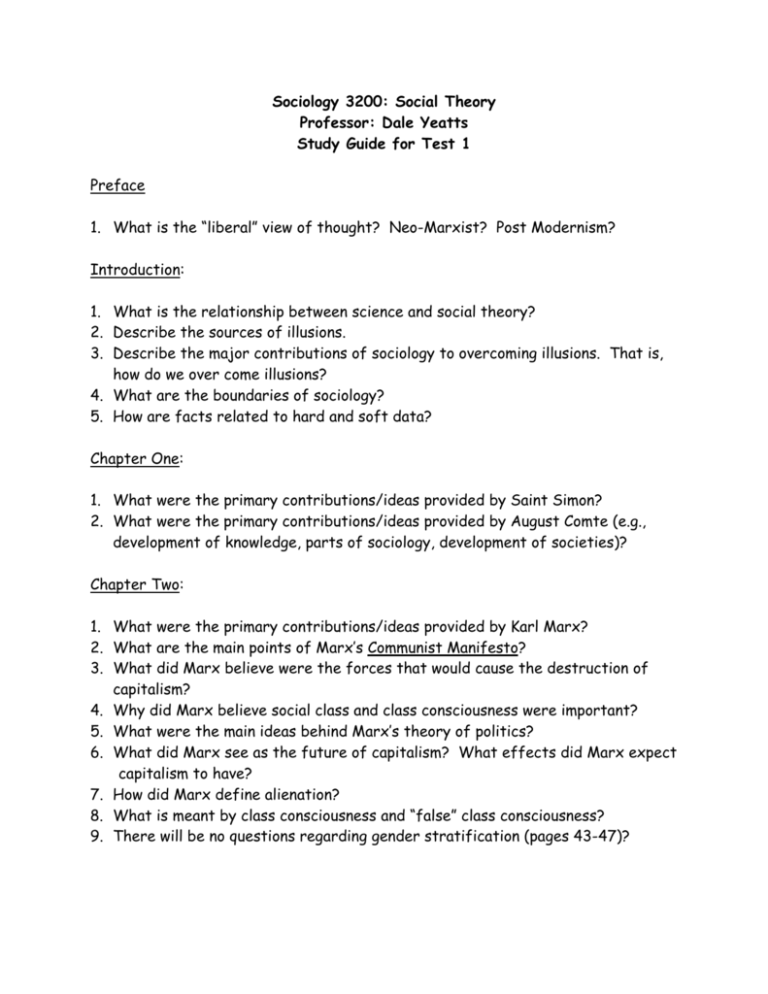
Sociology 3200: Social Theory Professor: Dale Yeatts Study Guide for Test 1 Preface 1. What is the “liberal” view of thought? Neo-Marxist? Post Modernism? Introduction: 1. What is the relationship between science and social theory? 2. Describe the sources of illusions. 3. Describe the major contributions of sociology to overcoming illusions. That is, how do we over come illusions? 4. What are the boundaries of sociology? 5. How are facts related to hard and soft data? Chapter One: 1. What were the primary contributions/ideas provided by Saint Simon? 2. What were the primary contributions/ideas provided by August Comte (e.g., development of knowledge, parts of sociology, development of societies)? Chapter Two: 1. What were the primary contributions/ideas provided by Karl Marx? 2. What are the main points of Marx’s Communist Manifesto? 3. What did Marx believe were the forces that would cause the destruction of capitalism? 4. Why did Marx believe social class and class consciousness were important? 5. What were the main ideas behind Marx’s theory of politics? 6. What did Marx see as the future of capitalism? What effects did Marx expect capitalism to have? 7. How did Marx define alienation? 8. What is meant by class consciousness and “false” class consciousness? 9. There will be no questions regarding gender stratification (pages 43-47)? Chapter Three: 1. What did Tocqueville see as the shortcomings and the strengths (advantages and disadvantages) of equality in America? 2. How did Tocqueville describe the American political system/government structures? 3. The press and media? 4. According to Tocqueville, how did geography help American development? 5. What were the factors that helped democracy grow in America (i.e., what were the three advantages that America had over France)? Chapter Four: 1. 2. 3. 4. What did Nietzsche have against Christianity and its morality? How did Nietzsche view the human will? How did Nietzsche view the human value system of his day? Altruism? Why does Collins and Makowsky feel that Nietzsche “ranks among the most heroic of the discoverers of society.” 5. What did Nietzsche view as the dominant morality of his day? Chapter Five: 1. What were the two sides of liberalism? 2. How did 18th century liberals view revolution? What views did liberal intellectuals hold in common? 3. What was the “sociobiology” revival? 4. What was the difference between liberal and conservative intellectuals? 5. What was the belief of those who supported natural law?

